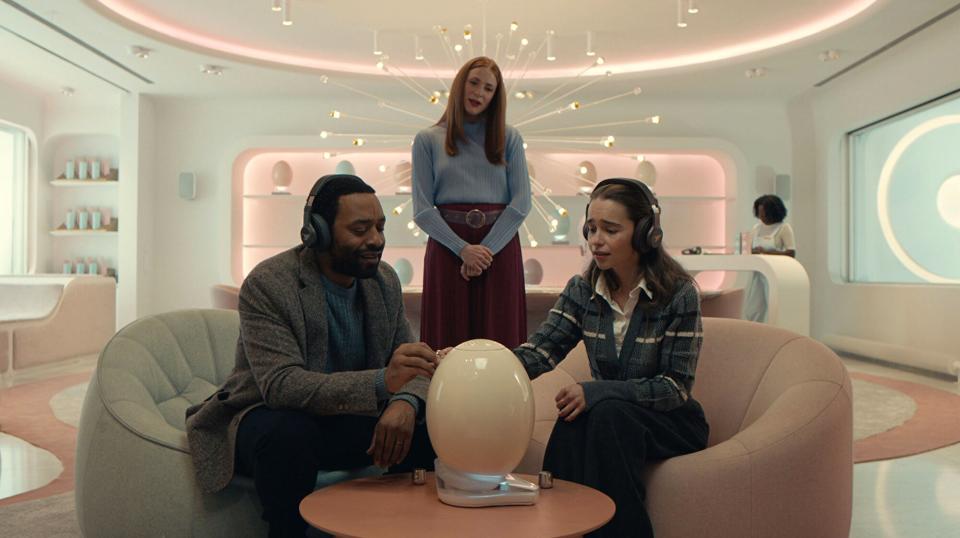The Pod Generation review: You've come a long way, baby
What is the future of fertility? Science has been building a better baby for so long now that when a high-gloss sci-fi satire like The Pod Generation (which premiered last night at the Sundance Film Festival) comes along, it tends to feel less like speculation than a road map.
Rachel (Game of Thrones' erstwhile dragon queen Emilia Clarke, now draped in lady business-wear) and Alvy (Chiwetel Ejiofor) are a New York couple living in a late 21st century of streamlined convenience in which every human need — coffee, oxygen, psychotherapy — has been fully, slickly automated. That's great for Rachel, who embraces every kind of technological advancement at her job producing Siri-esque assistants. It's less appealing to Alvy, a botanist and professor whose love for the natural world reads to most people like an amusing personal quirk: Why get your hands dirty, literally, when it's all already been reproduced so prettily in holograms?

Andrij Parekh
So it's not surprising that when Rachel's company first offers to subsidize the cost of childbirth by paying for an artificial gestation — they'd love her not to be inconvenienced by pregnancy — she balks at telling her husband. At the Womb Center, babies are planted like seedlings in gleaming pods that look like a cross between some new Apple toy and a naked Fabergé, and spend their next nine months suspended in a state of faux-amniotic bliss. Each zygote's growth is optimized and their every need tended to by the pod; parents can even choose to feed them or soothe them remotely from an app, like Tamagotchis. And Alvy does resist the idea at first, vehemently, but ease and progress (though that's not what he would call it) win out in the end.
French-American filmmaker Sophie Barthés (Cold Souls, Madam Bovary) finds surreal bits of wit in the details and makes it all look gorgeous: a glossy future-world just absurd and specific enough to feel real. Rachel's "therapist" is a giant eyeball blinking owlishly inside a digital flower crown; Alvy's confused students recoil at the offer of a freshly-plucked fig ("But it's from a tree," one says, incredulously). Ejiofor is eminently relatable as an analog man who can't seem to understand where it all went wrong, and Clarke's eyebrows knit with such pained expressiveness, it's as if they're having their own wriggling monologue throughout the movie.
Generation's targets — marriage, technology, modern parenting — also tend to feel fairly soft: low-hanging fruit, if it still grew that way. And even as it hints at more sinister ends (where, exactly, are these "wombs" headed?), the script eventually discards those troubling questions for a warm-bath optimism that swerves into silliness in the final act. You sincerely want to see these two nice, good-looking people find better living without chemistry, and make their own organic family. But the pods we haven't quite met yet no doubt have other plans. Grade: B
Related content:

 Yahoo News
Yahoo News 
